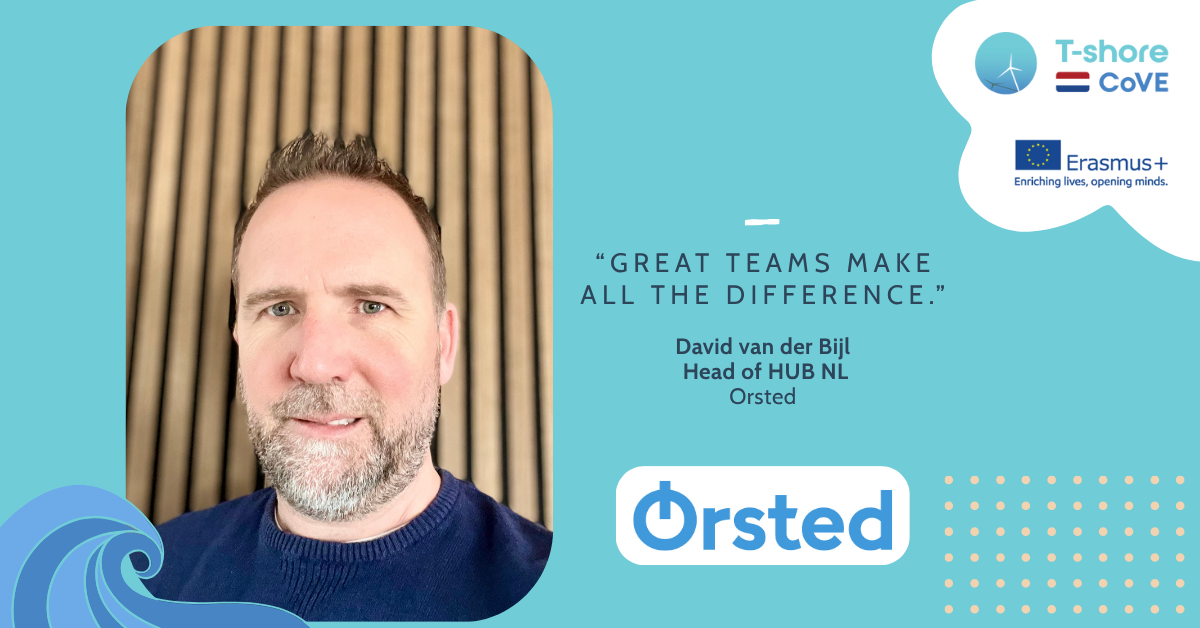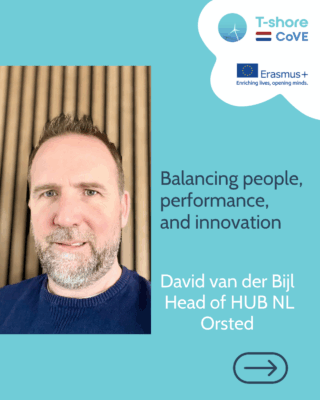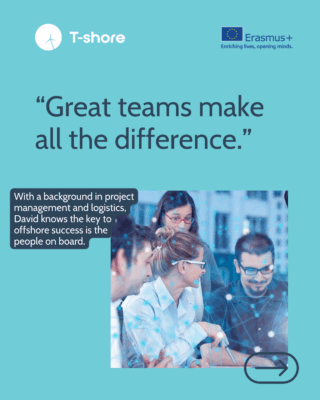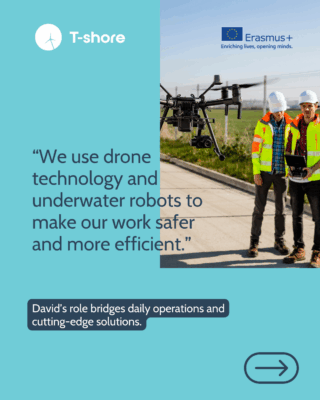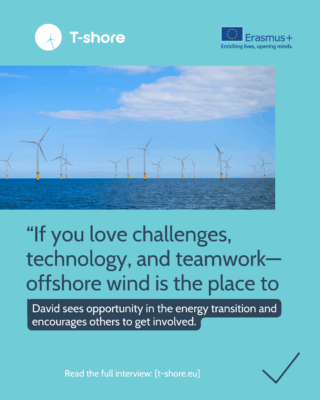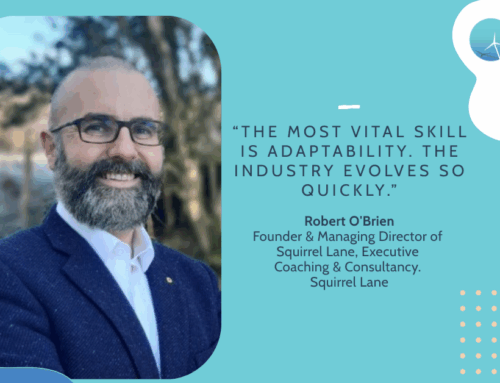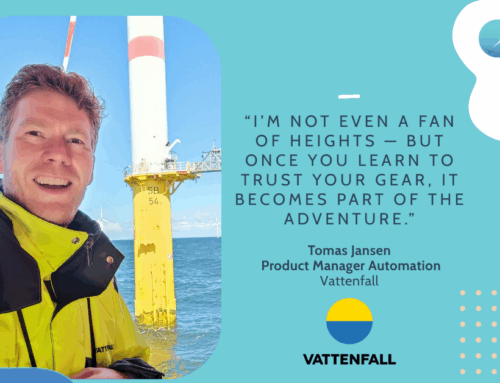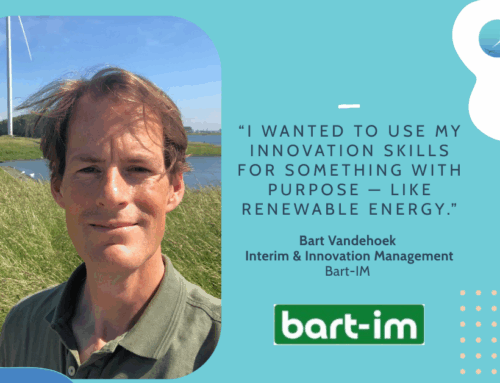David van der Bijl is Head of Hub NL at Ørsted, where he connects day-to-day offshore operations with wider company strategy. With a background in mechanical engineering and a career that spans oil, gas, and renewables, David brings practical experience and a people-focused mindset to the offshore wind sector.
In this interview, he shares how project management, logistics, and building strong teams have been central to his leadership. He reflects on the shift from oil and gas to renewables, the role of innovation in areas like drones and underwater robots, and why offshore wind is an ideal space for people who enjoy challenge, collaboration, and purpose. From motivating technicians to liaising with investors, David’s role shows how the industry blends technical excellence with human insight.
Full Transcript
Wind Industry Success Story: David van der Bijl By Tilly Stroo ,World Class Maintenance , 20-03-25
How did you enter the offshore wind industry?
“My background is in mechanical engineering, which I studied in France. I started my career in a metalworks company as a work planner, later transitioning to the offshore sector—first in oil and gas, then into offshore wind. The dynamic nature of working at sea, the technology, and the challenges were very appealing to me.”
Was there a defining moment in your career?
“Moving into offshore wind felt like a natural progression. The sector is constantly evolving and offers the opportunity to make a real impact on the energy transition. At Ørsted, I saw a company that embraced innovation and smart solutions from the market—that really resonated with me.”
What skills have helped you succeed?
“My background in project management and logistics was essential. Also, combining technical expertise with team collaboration at sea provided a strong foundation. The most surprising aspect? Understanding how crucial it is to have passionate people in the right roles. Great teams make all the difference.”
What advice do you have for those considering a career in offshore wind?
“Give it a try! Offshore wind offers opportunities in technology, project management, and innovation. It’s not a typical 9-to-5 job, but if you love a challenge, it’s an exciting sector. There are various work structures, from offshore roles to office-based positions. The key is finding what suits you best.”
What’s a typical day like for you?
“My day starts with checking in with my team to see what’s happening. Our technicians work long shifts, so a lot can change overnight. I stay involved without micromanaging, focusing on supporting my team and solving small issues before they become big problems. I also liaise with management in Denmark and investors to ensure everything runs smoothly.”
What’s the biggest challenge in your job?
“Balancing performance and people. It’s easy to focus on efficiency, but in the end, it’s all about the team. How do you keep people motivated and create a positive work culture? That requires constant attention. Additionally, the industry is evolving rapidly, and keeping up with innovation means continuous learning for everyone.”
What makes your role unique in offshore wind?
“My job bridges daily operations and corporate strategy. I translate high-level policies into practical, workable solutions. We also work with cutting-edge technology, such as drone technology, to make our work safer and more efficient.”
How has the industry changed since you started?
“I entered the offshore sector in 2002, when oil and gas dominated. The shift to renewables has been massive, and technology keeps advancing. We now use more ROV’s (Remotely Operated Vehicle) instead of divers for many tasks, and IT and cyber security are becoming more crucial. The great thing is that people continue to develop alongside the industry.”
What’s next?
“The industry will keep innovating, requiring flexibility from everyone. More technologies and specializations are emerging, so if you love challenges, technology, and teamwork, offshore wind is the place to be.”
What impact will offshore wind have on the energy transition?
“Offshore wind is already playing a key role in the shift to renewable energy. Technology is advancing rapidly—today’s turbines are far more advanced than those built just five years ago. The industry will continue to expand and contribute significantly to a cleaner energy future.”
Which innovations excite you the most?
“I’m particularly excited about advancements in technology, such as using drones and underwater robots for inspections. These innovations make maintenance more efficient and safer. We’re also seeing great progress in energy storage and integration with other renewables like solar power.”
What skills are essential for future offshore wind professionals?
“Curiosity and a willingness to learn are crucial. This industry evolves quickly, so you need to be adaptable and open to developing new skills. Teamwork is also vital, as collaboration is the key to success in this dynamic field.”
How can the industry attract more talent?
“Many people don’t realize how exciting and diverse offshore wind careers can be. Once they visit a wind farm, they’re usually hooked! We need to better showcase the opportunities available and how accessible this sector is. Education plays a big role in this.”
Why is now the perfect time to join offshore wind?
“The industry is growing rapidly, both in the Netherlands and globally. You can make a real impact on the energy transition while working with cutting-edge technology. Whether you want to work abroad or stay local, there are countless career paths to explore.”
How do you unwind after a long day?
“For me, sports are the best way to clear my mind. Cycling helps me maintain a healthy work-life balance. In an industry that operates 24/7, it’s essential to set boundaries and take time for yourself.”
David van der Bijl’s story highlights how offshore wind is shaped by both technology and people. His work at Ørsted shows what it takes to lead in a fast-paced sector—balancing performance with care, strategy with action, and innovation with teamwork. It’s a reminder that behind the turbines are teams making change happen every day.

